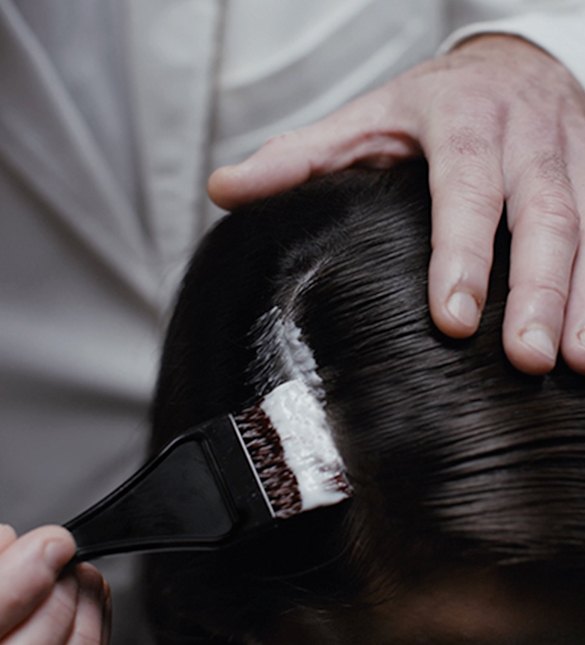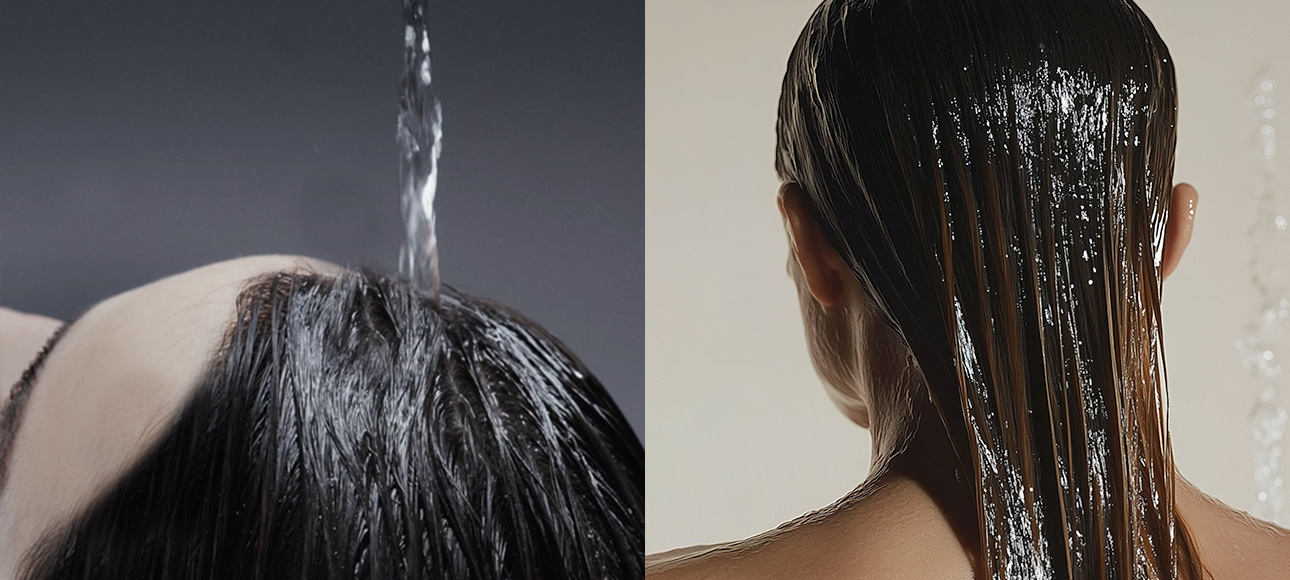
Achieving healthy, luscious locks is usually the culmination of many hours of research, positively impactful lifestyle choices, the use of a host of products and plenty of time spent receiving in-clinic treatments.
But what if a major component to healthier, shinier, more manageable hair is largely dependent on the water that you use to keep it clean. “The truth is, the quality of the water you wash your hair with plays a surprisingly big role in the way your hair looks, feels, and behaves,” reveals Ricardo Vila Nova. Depending on whether your home uses hard or soft you may find your hair is in need of some TLC.

Hard water explained
Hard water is simply water that contains a high concentration of minerals – mainly calcium and magnesium. As water travels through soil and rock, it collects these minerals naturally. By the time it reaches your showerhead, it can be heavily loaded with these elements, especially in areas with limestone or chalk-rich ground. When it comes to your hair, those same minerals can stick to your strands and scalp, causing more issues than you might realise.
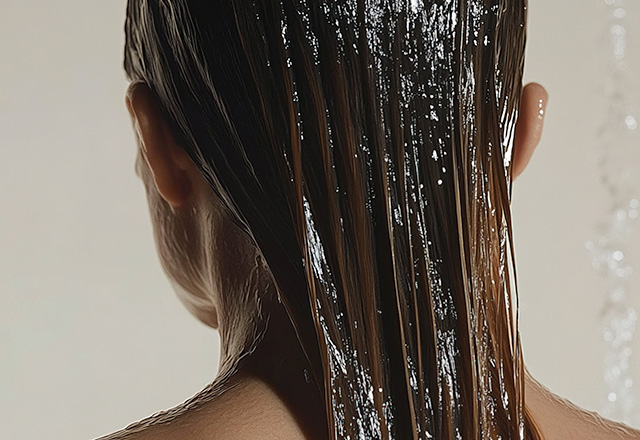
How hard water affects your hair and scalp
“Over time, hard water leaves behind a stubborn film on the hair and scalp, preventing moisture and nutrients from penetrating the hair shaft. This can lead to dryness, frizz, a rough, stiff texture and that frustrating dullness that makes hair look lifeless no matter how many shine serums you use. It also interferes with your hair products – shampoos can’t lather properly, conditioners don’t rinse cleanly, and styling products can feel like they’re just sitting on top of buildup,” shares Vila Nova.
Your scalp doesn’t escape the effects, either. Mineral residue can clog pores and irritate the skin, which in turn can lead to dryness, itchiness, flakiness, or even a greasy scalp as the skin tries to overcompensate for the lack of moisture present. Over time, this can interfere with healthy hair growth. “And while hard water doesn’t directly cause hair loss, it can weaken strands, make breakage more likely, and create an unhealthy environment for your follicles,” adds Vila Nova.
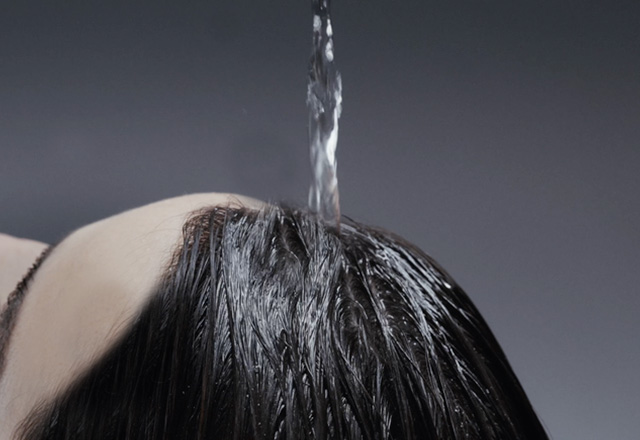
Soft water explained
If you’ve ever showered far from home and wondered why your hair suddenly looked amazing, you might have been experiencing soft water. Unlike hard water, soft water has very low levels of calcium and magnesium. It’s either naturally soft or has been treated with a water softener to remove these minerals.
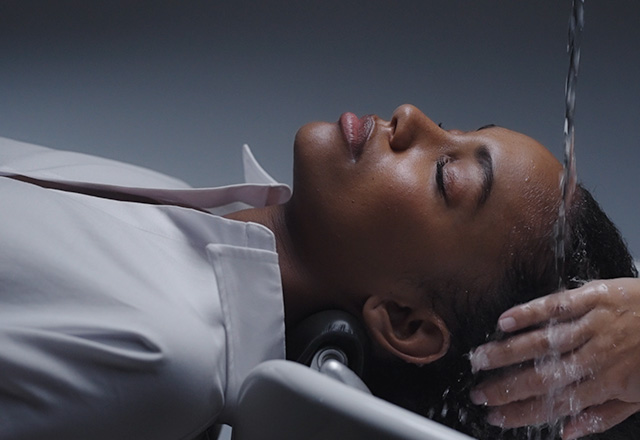
How soft water affects your hair and scalp
“Soft water has a few instant benefits: it helps hair feel cleaner, softer, and easier to manage. Shampoos lather more easily, meaning you’ll likely use less of the stuff, while conditioners are better absorbed so your hair may feel noticeably smoother and shinier after just a few washes,” says Vila Nova.
And, because soft water doesn’t deposit any residue, products rinse out completely, leaving your hair light and bouncy instead of weighed down. Also, it’s gentler on your scalp, making it less likely that you’ll experience dryness or irritation.
“However, while soft water is often considered the ideal type of water to use on your hair, it’s not perfect for everyone. Some people, especially those with very fine or naturally oily hair, find that soft water can make their roots feel greasy faster. Because it doesn’t strip away oil, the natural sebum from your scalp may stick around longer than you’d like,” explains Vila Nova.

Haircare can help
The good news is that you don’t have to completely overhaul your life to fight back against hard water – but being mindful of your haircare products can be helpful. “The first step is to clarify. Using a clarifying shampoo once a week can help break down mineral buildup and give your hair a clean slate. Look for formulas that contain chelating agents like ethylenediaminetetraacetic acid, citric Acid, and phytic Acid or natural acids like apple cider vinegar. On the flip side for those living with soft water, but who have fine hair or naturally oily scalps, a clarifying shampoo used two to three times a week should help keep scalp sebum at optimal levels,” recommends Vila Nova.
Hard water can also impact colour-treated hair, dulling vibrancy and distorting the shade and tone of your tresses. Opt for colour-safe shampoos and conditioners that are sulphate-free and designed to preserve your hue for longer.
Lastly, “since hard water can also strip moisture form the hair and scalp, you’ll also want to ramp up your use of nourishing actives. Make deep conditioners and hydrating masks your BFF’s, especially ones packed with emollients like shea butter, tsubaki oil, or glycerine. Also consider applying leave-in conditioners and lightweight oils, as these can act as a protective barrier against further mineral exposure,” says Vila Nova.
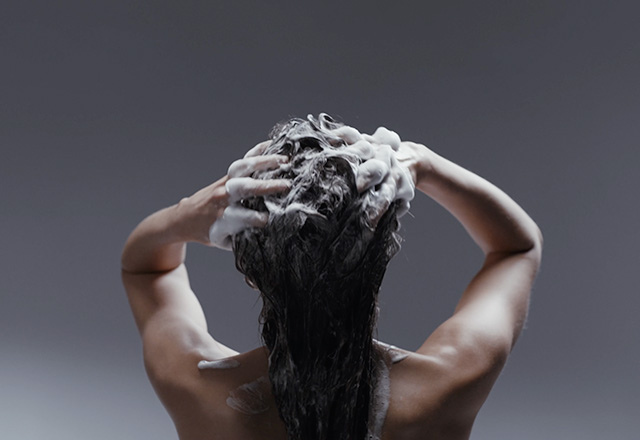
Is your water hard or soft?
You don’t need fancy equipment to figure out your water type – just a few simple tricks can give you major insight into what’s flowing from your showerhead.
A quick check of your water supplier’s website should reveal whether your water is hard or soft. But if they don’t, a few quick checks around the house can give you a clue. Chalky buildup on faucets, stiff laundry, and sinks that never really shine after cleaning, are all signs of hard water. “You could also purchase a water hardness test strip and dip it into your tap water. A handy chart will tell you what colour the strip will turn depending on the water quality and a result over 120ppm is considered hard,” explains Vila Nova.
Or you could perform the soap test. Fill a clear bottle to one-third full with tap water, add a few drops of liquid soap (with no moisturising agents) – shake it up, and see what happens. If you get lots of fluffy bubbles and clear water underneath, you’ve got soft water. If the water stays cloudy with little lather, it’s likely hard.
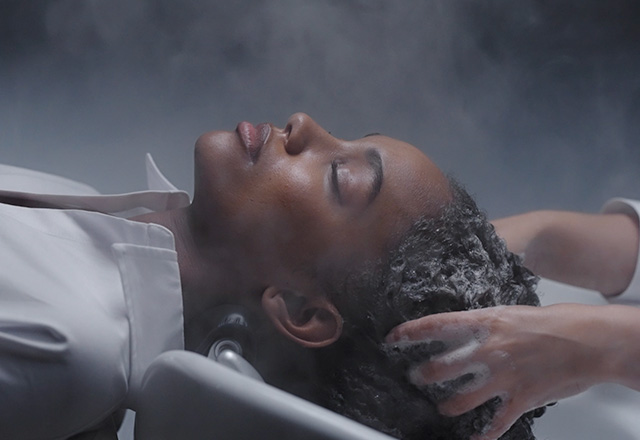
How to improve water quality
One of the simplest solutions for improving your water quality is to install a shower filter. These remove a significant amount of chlorine, heavy metals, and mineral deposits before they reach your hair and skin.
If that’s not possible you can rinse your hair with bottled or distilled water once a week, or finish your wash process with a diluted apple cider vinegar rinse. This helps to balance your scalp’s pH and remove any lingering buildup, restoring shine and softness.
“For a more comprehensive approach, a home water softening system can be installed at the source. These systems use salt or alternative filtration methods to remove calcium and magnesium from your water supply. While they’re a bigger investment, many people find they make a noticeable difference not only in hair health but in skin softness and even laundry and dishwashing results,” shares Vila Nova.
Whether your water is full of minerals or beautifully soft, knowing what you’re working with – and adjusting your routine accordingly – can be the difference between lacklustre, unhealthy locks and gorgeous tresses.

Wondering if your water is having an impact on your mane, book a consultation using the link below.


